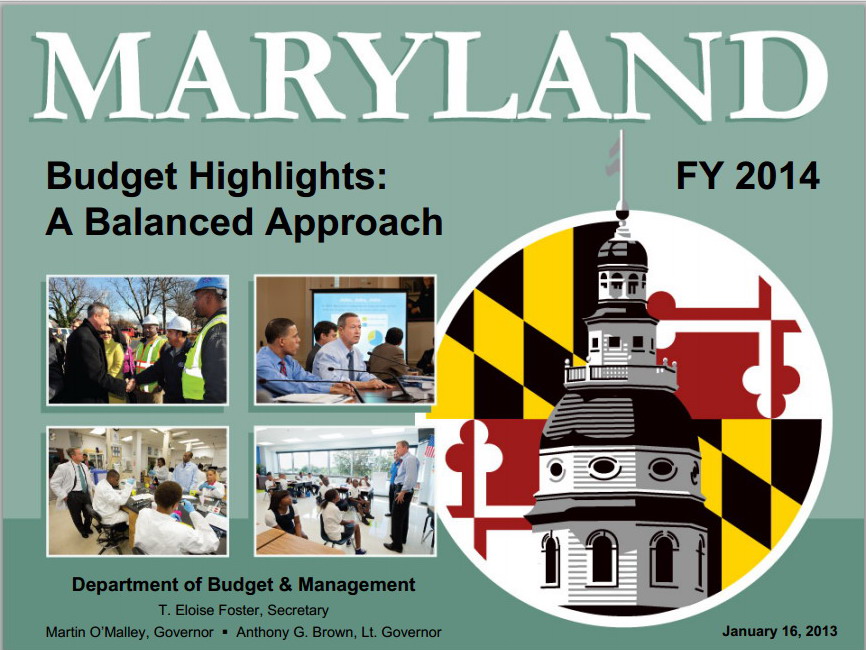Unexpected drop in Medicaid costs helps O’Malley budget, but there’s more borrowing too
 By Len Lazarick
By Len Lazarick
[email protected]
Legislative analysts told lawmakers Monday that Gov. Martin O’Malley’s proposed budget contains a number of fiscally responsible moves they had recommended in previous years and an unexpected $200 million drop in the cost of Medicaid health care. But it also extends for another five years $411 million in borrowing to replace cash from special funds used to finance other programs.
Legislators from the House Appropriations Committee and the Senate Budget and Taxation Committee had the most questions during the 2013 Department of Legislative Services Fiscal Briefing about the transfer from the real estate transfer tax to fund other programs. Over the next five years, $411 million will be shifted to the general fund, replaced with money from 15-year bonds with interest.
“Many of us thought it would be a one-time thing,” said Del. Charles Barkley, D-Montgomery.
It is “a one-time thing five times in a row,” quipped Warren Deschenaux, the legislature’s chief fiscal analyst. “This is one of the major devices to get to where [the governor] got,” reducing the structural deficit while adding to reserves and the rainy day fund.
“It just doesn’t seem to be a good way to fund our operating budget,” Barkley said.
Medicaid assumptions critical
The assumptions on Medicaid funding were “critical” to balancing the operating budget, Deschenaux said.
This fiscal year’s Medicaid spending has been adjusted to significantly lower spending due to “lower enrollment, changing case mix, favorable utilization trends” and reductions in rates for managed care, said analyst Mary Clapsaddle.
A major expansion of Medicaid to people at 138% of the poverty level is planned in fiscal 2014, but the entire cost is being picked up by the federal government under the Affordable Care Act. Other parts of the ongoing health insurance program are funded 50-50 by the state and federal government.
Deschenaux praised O’Malley’s plan for “cleaning up” $94 million in funding problems that legislative services had listed in previous budgets. This include $53 million in funds for Temporary Assistance to Needy Families (welfare) that were never going to come from the federal government.
“I have never seen so much fiscal responsibility in one bunch,” said Deschenaux. “They done good.”

MarylandReporter.com is a daily news website produced by journalists committed to making state government as open, transparent, accountable and responsive as possible – in deed, not just in promise. We believe the people who pay for this government are entitled to have their money spent in an efficient and effective way, and that they are entitled to keep as much of their hard-earned dollars as they possibly can.
